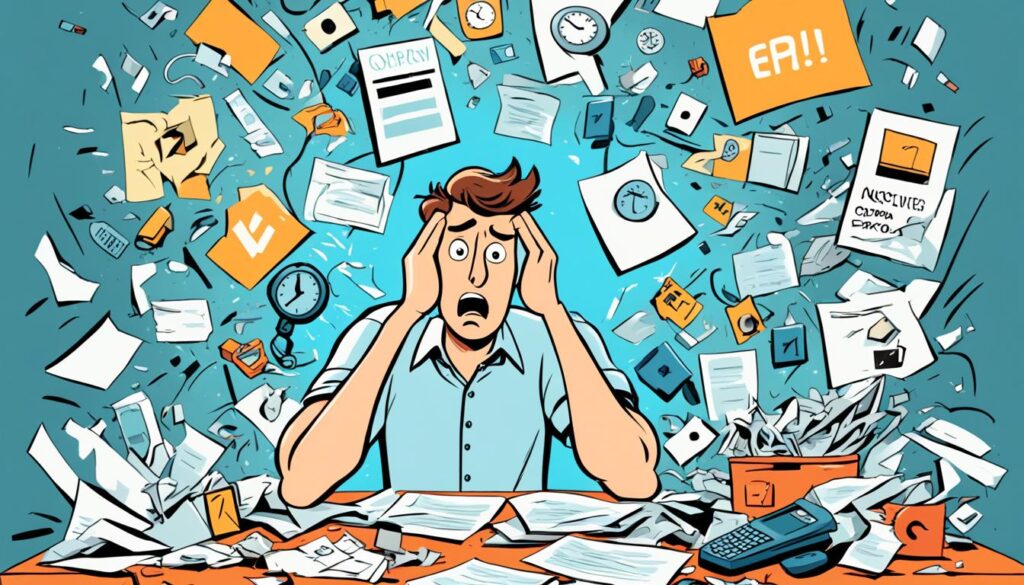Feeling stressed can take a toll on your physical, mental, and emotional well-being. However, there are effective stress management strategies you can employ to help you relax and manage stress. This article will explore various relaxation techniques and practices that can assist you in finding a sense of calm and balance when you’re feeling overwhelmed. From deep breathing exercises to engaging in enjoyable activities, you’ll learn how to prioritize self-care and cultivate a more calm mind and relaxed state of mind.
Table of Contents
ToggleIdentifying the Signs of Stress
Recognizing the signs of stress is the first step in addressing it. The stress symptoms you may experience can manifest in various ways, including physical, emotional, and behavioral changes.
Physical Symptoms
When you’re under physical stress, your body may exhibit signs such as headaches, muscle tension, fatigue, and digestive issues. These physical stress indicators can have a significant impact on your overall well-being and ability to function effectively.
Emotional Indicators
Emotionally, stress can lead to feelings of anxiety, irritability, or difficulty concentrating. These emotional stress responses can make it challenging to maintain a positive outlook and engage in daily activities.
Behavioral Changes
In addition to physical and emotional stress symptoms, your behavior may also change in response to high stress levels. This can include changes in sleep patterns, appetite, or increased alcohol or substance use. Recognizing these behavioral stress patterns can help you take proactive measures to manage your stress effectively.

Understanding the various manifestations of stress can empower you to take the necessary steps to regain control and find a sense of balance in your life. By being attuned to your body’s and mind’s reactions, you can develop effective strategies to manage stress and cultivate a healthier, more resilient mindset.
Breathe Deeply and Mindfully
One of the simplest and most effective ways to relax when you’re feeling stressed is to focus on your breathing. Abdominal breathing, also known as diaphragmatic breathing, can help lower your heart rate and blood pressure, and induce a sense of calm. This type of deep breathing involves taking slow, deep breaths from your abdomen rather than shallow breaths from your chest.
Abdominal Breathing Techniques
To practice abdominal breathing, sit or lie down in a comfortable position. Place one hand on your abdomen and the other on your chest. Inhale slowly through your nose, feeling your abdomen rise, and then exhale slowly through your mouth, allowing your abdomen to fall. Repeat this deep breathing exercise for several minutes, focusing on the sensation of the air moving in and out of your body.
Mindfulness Meditation
In addition to deep breathing techniques, practicing mindfulness meditation can also be a powerful tool for managing stress. Mindfulness involves being fully present in the moment, observing your thoughts and emotions without judgment. By focusing your attention on your breath and the sensations in your body, you can reduce the tendency to ruminate on worries or stressful thoughts. Regular mindfulness meditation can help you cultivate a greater sense of relaxation and inner peace.

By incorporating these breathing and mindfulness techniques into your daily routine, you can develop a powerful toolbox for stress relief and relaxation. Whether you’re facing a challenging deadline, dealing with a personal issue, or simply feeling overwhelmed, taking the time to breathe deeply and stay present can help you regain a sense of calm and control.
How to Relax When You Are Feeling Stressed
In addition to deep breathing and mindfulness, there are other proven techniques you can use to relax when you’re feeling stressed. Progressive muscle relaxation involves systematically tensing and releasing different muscle groups, which can help release physical tension and promote a state of relaxation. Guided imagery, where you visualize a peaceful or calming scene, can also be an effective Ways to Reduce Stress and anxiety. Engaging in positive self-talk, where you challenge negative thoughts and replace them with more constructive ones, can also contribute to a more relaxed state of mind.
Progressive Muscle Relaxation
Progressive muscle relaxation is a powerful relaxation exercise that can help alleviate physical tension and promote a sense of calm. By systematically tensing and then releasing different muscle groups, you can learn to recognize and release bodily stress, allowing your body and mind to enter a state of deep relaxation.
Guided Imagery
Guided imagery is a stress management technique that involves visualizing a peaceful, calming scene or experience. By immersing yourself in a serene mental image, you can effectively distract your mind from stressful thoughts and focus on positivity and tranquility, helping to reduce anxiety and promote a sense of well-being.
Calming Self-Talk
Engaging in positive self-talk can be a powerful tool for managing stress. By challenging negative or catastrophic thoughts and replacing them with more constructive and empowering internal dialogues, you can cultivate a calmer, more resilient mindset. This relaxation technique can help you navigate stressful situations with greater clarity and composure.

Engage in Physical Activity
Incorporating physical activity into your routine can be a powerful way to manage stress. Whether it’s a gentle yoga session or a brisk aerobic workout, engaging your body can have a profoundly positive impact on your mental and emotional well-being.
Yoga and Stretching
Yoga and stretching offer a unique combination of physical and mental benefits. By focusing on your breath and moving through a series of poses, you can release muscle tension and promote a state of mindfulness. This practice can be particularly beneficial when you’re feeling overwhelmed, as it allows you to turn your attention inward and connect with your body in a calming and grounding way.
Aerobic Exercise
Engaging in regular aerobic exercise, such as walking, jogging, or swimming, can be an excellent stress-relieving activity. These types of activities stimulate the release of endorphins, which are the body’s natural feel-good chemicals. As you move your body, you’ll experience an improved mood, reduced anxiety, and a greater sense of overall well-being. Even a brief 10-15 minute workout can make a significant difference in how you feel when you’re stressed.
Regardless of the physical activity you choose, the key is to find something that you enjoy and can easily incorporate into your daily routine. By making exercise a consistent part of your self-care regimen, you’ll be better equipped to manage the stresses of everyday life.
FAQ
What are the physical symptoms of stress?
Common physical symptoms of stress include headaches, muscle tension, fatigue, and digestive issues. Recognizing these physical signs can help you take proactive steps to manage your stress.
How can I practice deep breathing and mindfulness to relax?
Abdominal breathing, also known as diaphragmatic breathing, can help lower your heart rate and blood pressure, inducing a sense of calm. Additionally, practicing mindfulness meditation can help you stay present in the moment, reducing the tendency to ruminate on worries or stressful thoughts.
What other techniques can I use to relax when I’m feeling stressed?
Progressive muscle relaxation, where you systematically tense and release different muscle groups, can help release physical tension and promote relaxation. Guided imagery, where you visualize a peaceful or calming scene, can also be an effective way to reduce stress and anxiety. Engaging in positive self-talk, where you challenge negative thoughts and replace them with more constructive ones, can contribute to a more relaxed state of mind.
How can physical activity help me manage stress?
Incorporating physical activity into your routine can be a powerful way to manage stress. Yoga and gentle stretching can help release muscle tension and promote mindfulness, while aerobic exercise like walking, jogging, or swimming can stimulate the release of endorphins, which can improve your mood and reduce feelings of stress.
What are the emotional indicators of stress?
Emotionally, you may experience feelings of anxiety, irritability, or difficulty concentrating when you’re feeling stressed. Understanding these emotional manifestations of stress can help you take proactive measures to manage it effectively.
How can changes in behavior signify high stress levels?
Behavioral changes, such as changes in sleep patterns, appetite, or increased alcohol or substance use, can also indicate that stress levels are high. Recognizing these behavioral cues can help you identify when you need to prioritize self-care and relaxation techniques.
Also read
How To Stay Motivated In The Summer
How To Balance Productivity And Rest
5 Summer Food That leads to Burn Belly Fat
About The Author

Medically reviewed by Dr. Chandril Chugh, MD, DM (Neurology)
Board-Certified Neurologist
Dr. Chandril Chugh is a U.S.-trained, board-certified neurologist with expertise in diagnosing and managing neurological disorders, including migraines, epilepsy, Parkinson’s disease, and movement disorders. His clinical focus includes evidence-based neurological care and patient education.
All content is reviewed for medical accuracy and aligned with current neurological guidelines.




